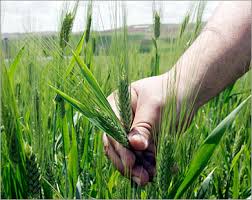
Nature of work
An agricultural inspector makes sure that businesses comply with the regulations that govern the health, quality, and safety of meat, poultry, egg products, fruit, and vegetables. He/she also inspects food- and meat-processing plants to ensure that the facilities meet quality standards. He/she strives to protect public health and well-being by protecting the public from foodborne illness. Most agricultural inspectors are very knowledgeable about regulations and standards in the area in which they work.In order to determine whether a business is meeting quality and safety standards, an inspector must make numerous visits and make thorough inspections of the product and its surroundings. For example, an inspector might take samples of animals at a meat-processing plant to test for diseases. He/she might also inspect livestock on the farm to review feeding practices and medical treatments. He/she may also analyze shipments of grain or vegetables for quality or levels of chemicals.
One of the main responsibilities of an agricultural inspector is the health and quality of livestock. With recent concerns about mad-cow disease, it is important that qualified inspectors—along with veterinarians—inspect the livestock population in order to protect people from any kind of bacteria or disease that can be passed from contaminated meat to humans.
Environment of work
An agricultural inspector works long and irregular hours spending much of his/her time in food- or meat-processing plants. Others may travel frequently to farms or ports inspecting cargo on boats or sitting on docks.Because the job involves finding problems or violations, an inspector may have to deal with antagonistic individuals and uncomfortable situations. The job can be demanding and very stressful. An inspector's work can have important financial and public health consequences.
Professional life
Retirement and advancement will provide opportunities for aspiring inspectors. Range of typical starting salary is 35000 SYP plus potential bonuses. Getting the job
Aspiring inspectors should take college courses in the areas of biology or agricultural science. Most positions require a four-year bachelor's degree but some do not. Candidates should also search out relevant work experience, such as working on a farm or in a meat-processing plant. Moreover, knowledge of laws and regulations in the field is imperative; on-the-job training will help to familiarize inspectors with inspection procedures. Skills
To become an agricultural inspector, you will need to have:Knowledge and experience in agriculture.
Good observation and problem-solving skills
Fairness and reliability.
up-to-date knowledge of relevant laws.
Good written and spoken communication skills
IT skills.
Quality Control Analysis : Conducting tests and inspections of products, services, or processes to evaluate quality or performance.
Critical Thinking: Using logic and reasoning to identify the strengths and weaknesses of alternative solutions, conclusions or approaches to problems.
Monitoring : Monitoring/Assessing performance of oneself, other individuals, or organizations to make improvements or take corrective action.
Judgment and Decision Making : Considering the relative costs and benefits of potential actions to choose the most appropriate one.
Science: Using scientific rules and methods to solve problems.
Sources and references
If a candidate needs any further information on what is included in this file, he/she can visit the following websites: www.afvisa.org, Association of Fruit and Vegetable Inspection and Standardization Agencies
www.ioia.net, Independent Organic Inspectors Association
Arab Standard Classification of Occupations, 2008, Ed. Arab Labor Organization.
Summary
An agricultural inspector is responsible for the standards and regulations in farming. If he/she would like visiting different workplaces each day and interested in farming, this job could be perfect for him/her.
To do this job, a candidate will need to have good observational and problem-solving skills. He/she will need fairness and reliability. He/she will also need good written and spoken communication skills.
To be an agricultural inspector, he/she would usually need at least a levels or equivalent qualificationsand at least two years’ relevant work experience.
